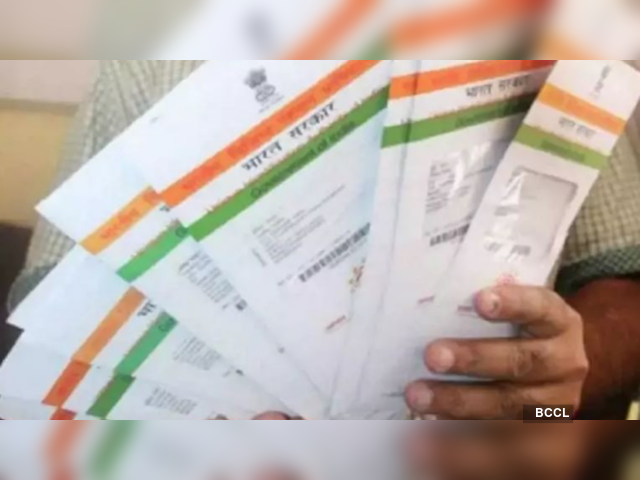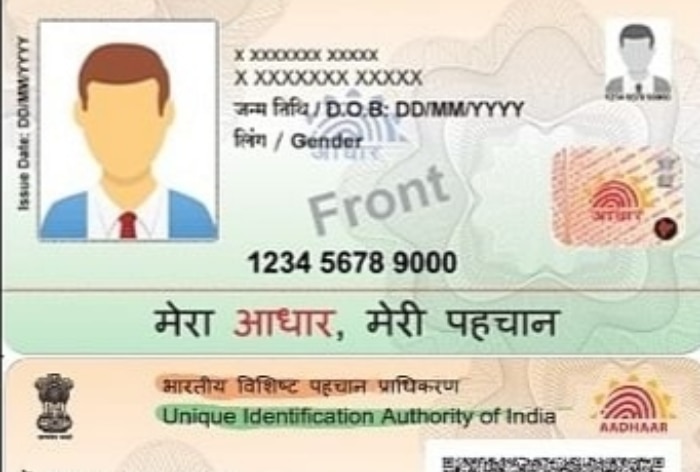Aadhaar: India’s Indomitable Digital Identity Defies Doubters

Aadhaar: India’s Indomitable Digital Identity Defies Doubters
In a recent twist of events, the Indian government has staunchly defended Aadhaar, hailing it as the world’s most trusted identification system, in response to critical remarks from Moody’s Investors Service. The dispute revolves around the reliability of Aadhaar, a unique biometric identity initiative, and its implications for privacy and security.
Moody’s had raised concerns about the Aadhaar system, highlighting potential vulnerabilities in its security infrastructure. One key issue they pointed out was the reliability of biometric technologies, particularly in humid conditions. The credit rating agency suggested that such uncertainties could jeopardize the integrity of Aadhaar as a dependable identification system.
The government’s response to these concerns has been swift and resolute. They categorically dismissed Moody’s opinions as “baseless” and rallied behind the Aadhaar project, emphasizing its reputation as the most trusted ID in the world. To comprehend this dispute better, let’s delve deeper into the Aadhaar system, the concerns raised, and the government’s rebuttal.
The Aadhaar Initiative: A Brief Overview
Aadhaar, which means “foundation” in Hindi, was introduced in India as a unique identification project aimed at providing every resident of the country with a 12-digit unique identification number. Launched in 2009, it was conceived to streamline the distribution of government benefits and subsidies, reduce identity fraud, and promote financial inclusion.
The Aadhaar system collects biometric data, including fingerprints and iris scans, and links them to an individual’s demographic information. With over 1.25 billion Aadhaar numbers issued to date, it has become a cornerstone of India’s digital infrastructure, used for various purposes, from accessing welfare schemes to opening bank accounts and even verifying one’s identity for mobile connections.

Moody’s Concerns: Security and Reliability
Moody’s Investors Service, a global credit rating agency, cast doubts on the reliability of Aadhaar, primarily due to concerns regarding security and the practicality of biometric technology. One of their key contentions was the susceptibility of biometric data to humid conditions, which they deemed “unreliable.” Moisture, they argued, could potentially compromise the accuracy of fingerprint and iris scans, leading to authentication failures.
Privacy also emerged as a significant concern in Moody’s assessment. The agency questioned the ability of Aadhaar to safeguard sensitive biometric information from potential breaches or misuse. In an era where data breaches and identity theft are rampant, these apprehensions were not to be taken lightly.
The Government’s Stalwart Defense
In response to Moody’s criticisms, the Indian government did not mince words. They vehemently rejected the allegations and defended Aadhaar as the world’s most trusted ID. Their counterarguments revolved around the following points:
1. Unmatched Scale: The government highlighted the sheer scale of Aadhaar, with more than a billion individuals enrolled. They argued that such massive adoption indicated a high level of trust among the populace.
2. Versatility: Aadhaar’s versatility was showcased, with the government pointing out that it was not solely reliant on traditional biometric scans. “Biometric submission is also possible through contactless means,” they asserted, alluding to the option of using Aadhaar OTPs (One-Time Passwords) for authentication.
3. Security Measures: The government stressed that Aadhaar had robust security measures in place to protect sensitive biometric data. They cited the use of encryption, multi-factor authentication, and stringent access controls as evidence of their commitment to safeguarding privacy.
4. Financial Inclusion: One of the primary goals of Aadhaar was financial inclusion. The government highlighted the success of Aadhaar in bringing millions of previously unbanked citizens into the formal financial system, promoting economic growth and reducing poverty.
5. Global Recognition: The government drew attention to the international recognition that Aadhaar had garnered, with several countries expressing interest in adopting similar identity systems.

The Broader Implications
The dispute between Moody’s and the Indian government regarding Aadhaar’s reliability has broader implications beyond just this identification system. It touches upon fundamental questions about the intersection of technology, privacy, and trust in an increasingly digital world.
As governments worldwide look to harness the potential of digital identification systems for various purposes, including public service delivery and national security, they must grapple with the inherent challenges and concerns. The Aadhaar-Moody’s dispute serves as a microcosm of these broader debates.

Conclusion
In the ongoing debate over Aadhaar’s reliability and security, the Indian government remains unyielding in its assertion that Aadhaar is the world’s most trusted identification system. While Moody’s has raised valid concerns regarding the vulnerabilities of biometric technology, the government has countered with the sheer scale, versatility, and security measures in place within the Aadhaar system.
This dispute underscores the importance of continuous scrutiny and improvement of digital identification systems to ensure they meet the highest standards of security and reliability. As the world embraces the digital age, finding a balance between convenience, privacy, and security will be an ongoing challenge for governments and organizations alike. Aadhaar, for now, stands as a testament to India’s ambition to create a robust digital identity infrastructure, but the debate is far from settled.
The Aadhaar-Moody’s dispute also underscores the broader global conversation on the delicate balance between convenience and individual privacy. In the age of rapidly advancing technology, where biometric data is increasingly used for everything from unlocking smartphones to making payments, the security of such personal information has never been more critical.
The Aadhaar project serves as an example of how a nation can harness technology to streamline services and reduce fraud, but it also poses questions about the potential vulnerabilities inherent in centralized digital identity systems.
Moreover, this controversy highlights the ongoing need for stringent data protection and privacy laws. While the government has touted the security measures in place, concerns about data breaches and unauthorized access remain. The Indian Supreme Court’s landmark decision in 2018, which upheld the constitutional right to privacy and placed restrictions on how Aadhaar data could be used, signifies the importance of robust legal frameworks in safeguarding individual rights in an increasingly digitized world.
As the debate rages on, it is evident that the Aadhaar system has evolved into a symbol of both innovation and apprehension. Its potential to revolutionize public service delivery and financial inclusion is undeniable, yet its ability to withstand the scrutiny of global credit rating agencies like Moody’s highlights the ever-present challenge of ensuring the trustworthiness of digital identity systems.
As India continues to fine-tune and expand its Aadhaar initiative, it does so with the awareness that the world is watching, scrutinizing, and learning valuable lessons about the complex interplay between technology, trust, and individual rights.




